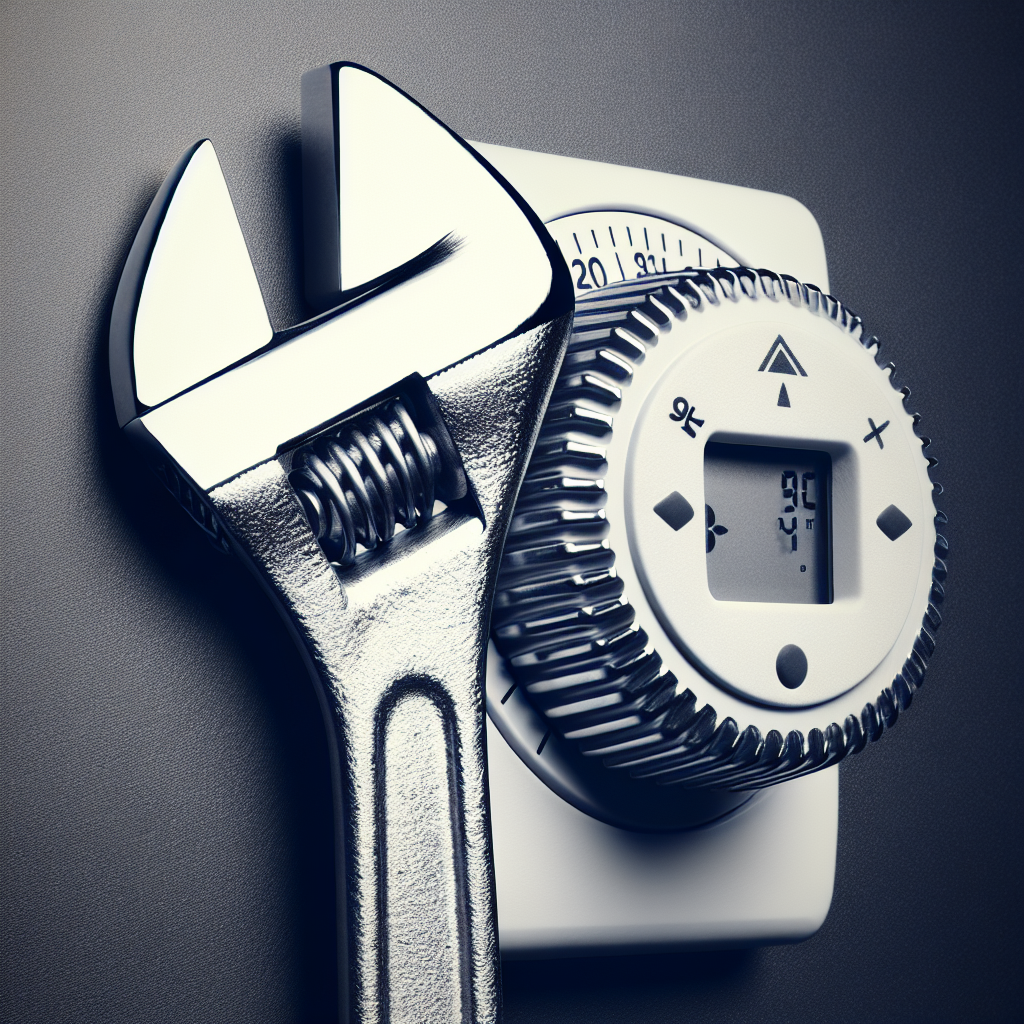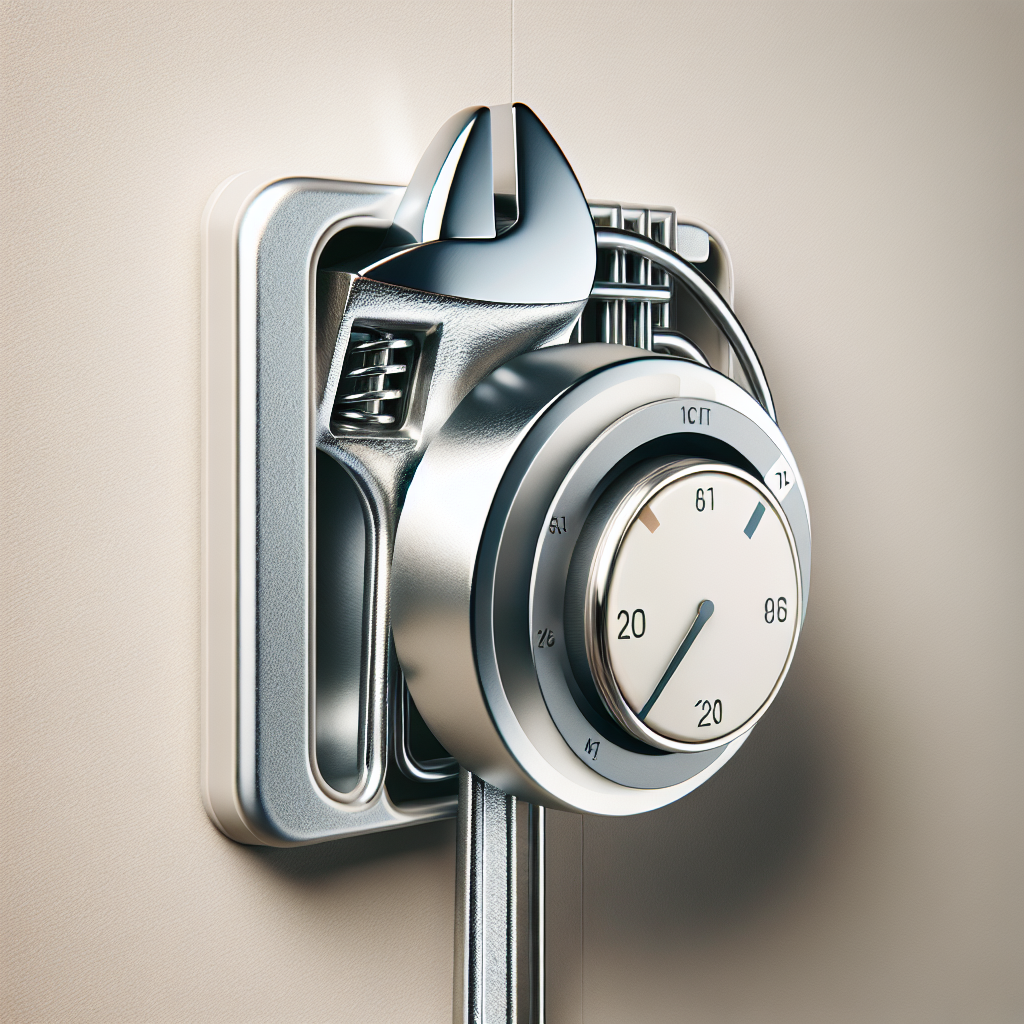Have you ever wondered about the interconnectedness of your plumbing and HVAC systems? Well, prepare to be amazed as we explore the fascinating relationship between these two vital components of your home. From leaky pipes impacting air quality to malfunctioning HVAC units affecting water temperature, this article will unravel the mysteries of how plumbing issues affect HVAC systems and vice versa. So, grab a cup of tea and get ready to embark on a journey of discovery that will leave you with a newfound appreciation for the intricate dance between your pipes and your heating and cooling.
Effects of Plumbing Issues on HVAC Systems
Introduction
Plumbing issues can have a significant impact on the performance and functionality of HVAC systems. Whether it’s a lack of water flow, decreased water pressure, or contaminated water, these problems can directly affect the efficiency and effectiveness of your heating, ventilation, and air conditioning systems. In this article, we will explore the various ways in which plumbing issues can negatively impact your HVAC system, leading to potential problems and inefficiencies.
1. Water Supply Issues
– Lack of Water Flow
A lack of water flow in the plumbing system can hinder the operation of your HVAC system, especially if it relies on water for cooling or other functions. Without sufficient water flow, the HVAC system may struggle to regulate temperature, resulting in decreased efficiency and performance. Additionally, inadequate water flow can cause overheating of certain components, potentially leading to long-term damage and costly repairs.
– Decreased Water Pressure
When your plumbing system experiences decreased water pressure, it can directly affect the functionality of your HVAC equipment that relies on water, such as evaporative coolers or humidifiers. Reduced water pressure can result in inadequate cooling or humidification, preventing your HVAC system from properly maintaining your desired indoor climate. This can lead to discomfort, decreased air quality, and increased energy consumption as the system works harder to compensate for the lack of water pressure.
– Contaminated Water
If your plumbing system delivers contaminated water to your HVAC equipment, it can lead to a range of issues. Contaminants such as bacteria, sediment, or minerals can accumulate in the HVAC system, resulting in clogged pipes, reduced efficiency, or even damage to vital components. Moreover, using contaminated water in your HVAC system may lead to compromised indoor air quality, negatively impacting the health and wellbeing of occupants in your home or building.
2. Leaks and Water Damage
– Damaged Ductwork
Plumbing leaks can often lead to water damage, and when they occur near or around HVAC ductwork, the consequences can be particularly problematic. Water leaking into the ducts can not only damage insulation but also create an environment conducive to mold and mildew growth. This can cause unpleasant odors, degrade indoor air quality, and even lead to respiratory issues for those occupying the space. Additionally, water damage can weaken the structural integrity of the ductwork, leading to leaks of conditioned air and decreased HVAC system efficiency.
– Corroded Components
Plumbing issues such as pipe leaks or bursting can result in water coming into contact with HVAC components. When this water contains corrosive substances, it can lead to the corrosion of HVAC equipment, including coils, valves, or heat exchangers. Corroded components not only affect the performance and efficiency of the HVAC system but can also shorten its lifespan. The need for repairs or replacements resulting from such corrosion can be expensive and disruptive to the functioning of your HVAC system.
– Mold and Mildew Growth
Excessive moisture resulting from plumbing issues can create an ideal environment for mold and mildew growth in your HVAC system. These fungi can thrive in areas with high humidity levels and stagnant water, such as air conditioning drip pans, drain lines, or cooling coils. Mold and mildew can compromise indoor air quality and potentially cause respiratory problems, allergies, or asthma. Proper maintenance and immediate resolution of plumbing issues are essential to prevent the growth and spread of mold and mildew in your HVAC system.
3. Pipe Freezing and Bursting
– Insufficient Heating
In cold climates, plumbing issues such as insufficient heating or insulation can result in frozen pipes. When the pipes freeze, not only does it disrupt the water supply, but it can also impact the performance of your HVAC system. Frozen pipes can prevent the proper circulation of hot water through the heating system, reducing its overall effectiveness. HVAC equipment that relies on hot water, such as radiant heating systems, may struggle to provide warmth, leading to discomfort and inefficient heating.
– Pressure Build-up
When pipes freeze and subsequently thaw, the resulting pressure build-up can lead to burst pipes. This sudden release of water can cause significant water damage to your property, affecting not only the plumbing system but also your HVAC equipment. Burst pipes can flood areas where the HVAC system is installed, potentially damaging components such as air handlers, ductwork, or electrical connections. This water damage can be costly to repair and result in prolonged disruptions to the operation of your HVAC system.
– Damage to HVAC Equipment
Frozen pipes and burst pipes not only impact water supply but can also cause damage to the HVAC equipment itself. The sudden release of water can directly affect the components of the HVAC system, leading to corrosion, electrical malfunctions, or equipment failure. Repairing or replacing damaged HVAC equipment can be a significant financial burden, and the downtime associated with such repairs can disrupt the comfort and functionality of your living or working space.

Impact of HVAC Systems on Plumbing
Introduction
While plumbing issues can have adverse effects on HVAC systems, it’s equally important to consider the impact that HVAC systems can have on plumbing. From increased water usage to temperature control and humidity levels, HVAC systems can directly influence the performance and maintenance of your plumbing system. Understanding these dynamics can help you identify potential issues and take appropriate measures to ensure both your HVAC and plumbing systems function optimally.
1. Water Usage
– Increased Hot Water Demand
HVAC systems that utilize hot water for heating purposes, such as boilers or hydronic systems, can result in increased hot water usage. This increased demand for hot water can put strain on your plumbing system, particularly if it is not equipped to handle the additional load. Insufficient hot water supply can lead to discomfort, especially during peak usage times, and may require adjustments or upgrades to your plumbing system to meet the increased demand.
– Condensate Drainage
Many HVAC systems generate condensate as a byproduct of their cooling function. This condensate needs to be properly drained, and if your plumbing system is not equipped to handle it, it can result in drainage issues and potential water damage. Ensuring that your plumbing system has appropriate drainage mechanisms in place, such as condensate pumps or drain lines, is crucial to prevent overflow or excessive moisture buildup.
2. Temperature Control
– Impact on Water Heating
HVAC systems play a significant role in maintaining temperature control within a building, and this can directly impact the water heating requirements. For instance, if your HVAC system is designed to cool certain areas, it may lead to a reduced demand for hot water in those spaces. Conversely, if your HVAC system involves heating certain areas, it may increase the demand for hot water in those zones. Understanding the relationship between your HVAC system’s temperature control settings and your plumbing system’s water heating capacity can help ensure efficient and cost-effective operation.
– Thermal Expansion
When water is heated, it expands, leading to an increase in volume within the plumbing system. This thermal expansion can put stress on pipes, joints, and fittings, potentially causing leaks or even bursts. HVAC systems that rely on water heating, such as radiant heating systems or heat pumps, contribute to thermal expansion within the plumbing system. Proper consideration of this expansion and the installation of appropriate expansion tanks or valves can help prevent damage to your plumbing system due to excessive pressure.
3. Humidity
– Condensation Issues
The cooling function of HVAC systems involves removing humidity from the air. As the warm air passes over the cooling coils of the system, moisture condenses and collects as condensate. Improperly managed condensate can lead to moisture buildup and potential water damage within your plumbing system. Ensuring proper insulation, drainage, and condensate management within your HVAC system can help prevent condensation issues from impacting your plumbing.
– Mold and Mildew Growth
HVAC systems that do not properly control humidity levels can contribute to the growth of mold and mildew within the plumbing system. Excessive moisture can lead to condensation in pipes, traps, or other plumbing fixtures. Mold and mildew growth not only compromise the integrity of your plumbing system but can also impact indoor air quality. Regular maintenance of your HVAC system, including humidity control measures, can help prevent the growth of mold and mildew, ensuring a healthy and efficient plumbing system.
In conclusion, plumbing issues and HVAC systems are closely interconnected, with each having the potential to impact the other’s performance and functionality. From water supply problems to leaks, freezing pipes, increased water usage, temperature control, and humidity levels, understanding the effects and relationship between plumbing and HVAC systems is crucial for maintaining a comfortable and efficient living or working environment. Regular maintenance, timely repairs, and proper consideration of the dynamic between these systems can help mitigate potential issues and ensure the smooth operation of both your plumbing and HVAC systems.


